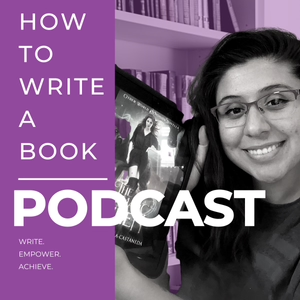
1984 Part 3 Book 2
07/27/20 • 24 min
1984 continues to the end of Book 2.
An analysis of 1984 sharing direct quotes from the text by George Orwell, analysis points from Litcharts. and a shared clip from BBC news, https://youtu.be/EuVYvkdTYWc
Clip from "Pattern Integrity Films" speaking; George Carlin
Manipulating the past, creating fear and hatred out of nothing, and wiping out the existence of individuals; reality control once been applied will demolish people’s freedom. In 1984 Oceania built a dictatorship of totalitarianism. The party rules with fear, brainwash, and manipulation. History may be regarded as truth from the past, but it sometimes can also be a means to convey ideology or patriotism in modern society. If the government wants their citizens to remember a defeat in history that was shameful they will write accordingly in the textbook, so the next generation can hold the same agreement. The extreme measure of manipulating history is described by George Orwell as reality control in the book.
--- Send in a voice message: https://podcasters.spotify.com/pod/show/thebeautifulletters/message Support this podcast: https://podcasters.spotify.com/pod/show/thebeautifulletters/support1984 continues to the end of Book 2.
An analysis of 1984 sharing direct quotes from the text by George Orwell, analysis points from Litcharts. and a shared clip from BBC news, https://youtu.be/EuVYvkdTYWc
Clip from "Pattern Integrity Films" speaking; George Carlin
Manipulating the past, creating fear and hatred out of nothing, and wiping out the existence of individuals; reality control once been applied will demolish people’s freedom. In 1984 Oceania built a dictatorship of totalitarianism. The party rules with fear, brainwash, and manipulation. History may be regarded as truth from the past, but it sometimes can also be a means to convey ideology or patriotism in modern society. If the government wants their citizens to remember a defeat in history that was shameful they will write accordingly in the textbook, so the next generation can hold the same agreement. The extreme measure of manipulating history is described by George Orwell as reality control in the book.
--- Send in a voice message: https://podcasters.spotify.com/pod/show/thebeautifulletters/message Support this podcast: https://podcasters.spotify.com/pod/show/thebeautifulletters/supportPrevious Episode

1984 Part 2
1984 continues to the end of Book 1. An analysis of 1984 sharing direct quotes from the text by George Orwell, analysis points from Litcharts. and a shared video from BBC news, https://youtu.be/EuVYvkdTYWc
Manipulating the past, creating fear and hatred out of nothing, and wiping out the existence of individuals; reality control once been applied will demolish people’s freedom. In 1984 Oceania built a dictatorship of totalitarianism. The party rules with fear, brainwash, and manipulation. History may be regarded as truth from the past, but it sometimes can also be a means to convey ideology or patriotism in modern society. If the government wants their citizens to remember a defeat in history that was shameful they will write accordingly in the textbook, so the next generation can hold the same agreement. The extreme measure of manipulating history is described by George Orwell as reality control in the book.
--- Send in a voice message: https://podcasters.spotify.com/pod/show/thebeautifulletters/message Support this podcast: https://podcasters.spotify.com/pod/show/thebeautifulletters/supportNext Episode

Emily Bronte' and the analysis of Wuthering Heights, the first wave of feminism and the love/passion of the characters; Catherine and Heathcliff
A literary analysis of the Gothic/Romantic Novel written by Emily Bronte'. The connection of the single novel written by a young literary artist during the Victorian Period and the pre-feminist period. Two years prior to Emily's book, that was originally a flop, the proto-feminism wave had begun, and soon after Wuthering Heights would be a novel considered throughout the ages.
Charlotte Ballet.org states the following examples of Withering Heights in Pop culture;
"Though the novel is now considered a literary classic, Emily Brontë did not receive such praise at the time of its publishing. Wuthering Heights shocked the public, and critics mentioned it could not have possibly be written by a women. Being rejected by publishers, Brontë had to self-publish the 1847 novel and use a male name, Ellis Bell, as the author. The next year, 1848, she died at age 30 from tuberculosis, thinking that her book was a failure."
https://charlotteballet.org/2017/04/07/wuthering-heights-in-pop-culture/
"The first “bad boy” of literature | Author, Christina Bartholomeo’s states Heathcliff is an unforgettable archetype and “is the original “bad boy”; without him, so many great bad boys of literature might not exist, from Dracula to Jay Gatsby to James Dean.”
The Twilight Series – Eclipse | Stephanie Meyer, the author of the popular Twilight Saga novels, drew inspiration from each book in the series from literary classics: Twilight on Jane Austen’s Pride and Prejudice, New Moon on Shakespeare’s Romeo and Juliet, Eclipse on Emily Brontë’s Wuthering Heights, and Breaking Dawn on A Midsummer Night’s Dream. here are also many allusions to Wuthering Heights in her novels. Bella says it is her favorite novel and is worn out from reading it so much. In Eclipse, Bella and Edward both compare themselves to Catherine and Heathcliff of Wuthering Heights, as the love triangle between the two and Jacob relate to that off Catherine, Heathcliff and Edgar.
Special Guest, Ella Han from Beijing. Ella will read a poem that she wrote in reflection to the poetry Emily Bronte has written as well as her famous novel, Wuthering Heights. I will give a brief analysis of the love and passion that Bronte builds to cause friction, revenge, resentment, love and passion with the theme of the story, the four seasons. How would you compare each of the love relationships to one of the four seasons? Please take the time to view the website where the Bronte Parsonage Museum shares the literary legacy of the Brontes. https://www.bronte.org.uk/about-us
In addition credits go to;
Litcharts.com, https://www.britannica.com/biography/Emily-Bronte, https://www.bartleby.com/essay/Feminist-Ideas-in-Emily-Brontes-Wuthering-Heights-FK83ES5H3GEZ,
--- Send in a voice message: https://podcasters.spotify.com/pod/show/thebeautifulletters/message Support this podcast: https://podcasters.spotify.com/pod/show/thebeautifulletters/supportIf you like this episode you’ll love
Episode Comments
Generate a badge
Get a badge for your website that links back to this episode
<a href="https://goodpods.com/podcasts/all-the-beautiful-letters-141005/1984-part-3-book-2-6918834"> <img src="https://storage.googleapis.com/goodpods-images-bucket/badges/generic-badge-1.svg" alt="listen to 1984 part 3 book 2 on goodpods" style="width: 225px" /> </a>
Copy




